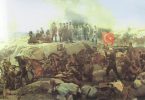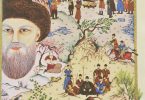Haldun Taner is an author whose existence is felt during the development era after the 1950s of the modern Turkish theatre and short story. He is known to be an adorable author within the Turkish theatre and short story circles and yet, at the same time, also has a sharp sense of humour. With this sharp sense of humour, in which one feels the existence of high intelligence, there is absolutely no room for rudeness, insults and belittling. Haldun Taner, who successfully uses the Istanbul dialect of Turkish language, even has a touch of an Istanbul gentleman and sensitivity with his satire. Just as Emre Kongar speaks of him, he was able to catch the meeting point of the national with the universal, probing these both from a perspective of society and class, and relayed this to the public through an amazing sense of humour and intelligence.
Haldun Taner does not come across as two different authors within his stories and plays. Quite the contrary, he knows how to conduct both styles in harmony. In fact, most of the time, both of these is what completes Haldun Taner. In his works, he concentrates on the details and the small messages within these details. He is an author who attempts to analyse the environment, things, reality, man and events through a diffrent form of interpretation. Surely, the western culture he was exposed to has a great share of influence. Due to his western education, he learned to look objectively and approach matters with the sensitivity of an artist. He was never judgmental about any matter. The fact that he studied high school at Galatasaray High, which is considered to be the window opening out to the West, and studying Germany for many years, returning back to Istanbul and undertaking German Philology at Istanbul University, proves that his connections with the west, western culture and literature were never hindered.
The author, whose many stories and plays were translated into many languages, in fact is an urban storyteller. He uses his language quite masterfully when exploring the urban man within his stories and plays. You will not find any form of constraint or artificiality in his language and narrations. The events just flow. Most of the time, the reader will even forget that what they are reading is all fiction. He has very intelligent detections and catches the attention of the reader in this manner. Haldun Taner, who is a master in applying the perfect amount of dosage of criticism within his stories and plays, believes that being humane is the main foundation. He never intends to belittle his protagonists with his criticisms. I speak of the form of criticism that accepts the protagonists as they are within the context of their lives and conditions.
The characters within Haldun Taner’s stories and plays are realistic characters. When he creates them, he gives special importance to observations and experiences. It is for this reason that the characters within his writings are realistic characters. We get the sense that we might even come across these types in our own lives. In fact, some may even seem a little too familiar. We can distinguish between these types of characters through their dialogues and behaviours. He is an author who has concentrated mostly on the state of man. Therefore, you are always able to hear the voice of a thinking man in the backgrounds of his stories and plays.
Haldun Taner witnessed the changes of the Turkish society together with the Republican system. He also defended this change. However, he was against how this change was rootless, without plan and unbalanced. Just as it also is percieved with the other authors of the times, he also concentrated on how the individual was alienated and isolated. He provides little room for events in his plays in which he explores the matter of the isolation and loneliness of the individual. In those plays in which he puts the individual at the centre, you will not find any stereotyped characters or you may realise that he analyses the inner worlds of these characters and explores their unique and delicate details. In his cabarets, he creates characters that are exaggerated or caricatured as is necessary of the genre.
On the other hand, the author also does not ignore the different dimensions of social change taking place in Turkey. Cultural change also meant the change of the city’s demographic structure, architecture and planning. The immigration from the village to the city was also a sign of change. The concept of the slums is the result of such a process. The slums are full of people who falter between urbanity and rurality and full of individuals who try to enliven the behaviours and mentality of the rural in the urban city. His most popular play, ‘Keşanlı Ali Destanı’, explores the parody of such an environment. This play, which explores the story of a man who is turned into a legend by a rural community, was to be filmed as a television series later on.
At the end of his life of 71 years, he left behind masterpieces such as ‘Keşanlı Ali Destanı’, ‘Bir Şehr-i Stanbul ki’, ‘Vatan Kurtaran Şaban’, ‘Yar Bana Bir Eğlence’, ‘Sersem Kocanın Kurnaz Karısı’. While his stories ‘Eller’, Şişhaneye Yağmur Yağıyordu’, ‘Ayışığında Çalışkur’, ‘Konçinalar’, ‘Kızıl Saçlı Amazon’, ‘Sancho’nun Sabah Yürüyüşü’, ‘Gülerek Ölmek’ seem to have already taken their place as the best samples of Turkish short story.









Leave a Comment